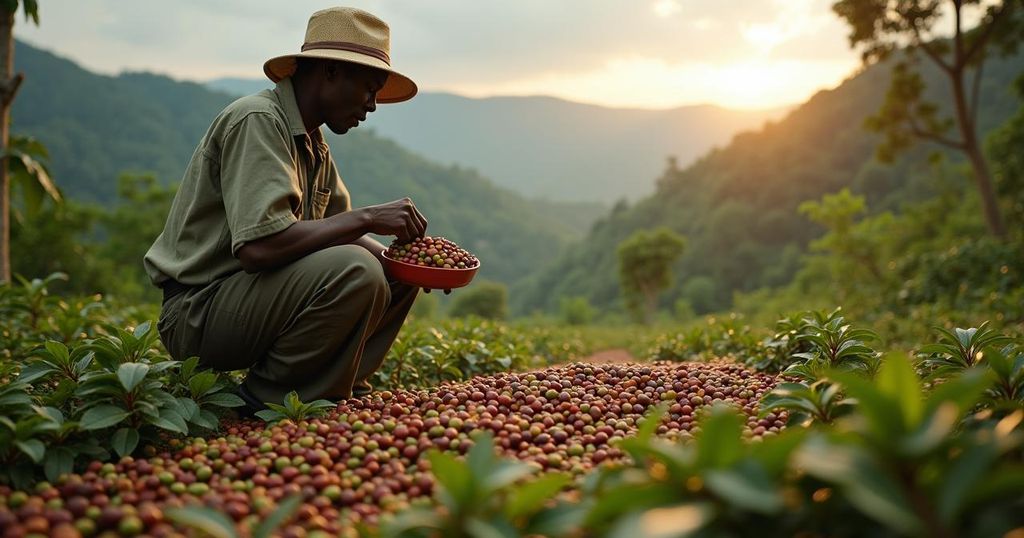The Democratic Republic of the Congo is experiencing a revival in its coffee industry thanks to USAID-backed initiatives that focus on improving coffee production and market access. Farmers in South Kivu are learning vital skills, successfully engaging with international buyers, and selling high-quality coffee, paving the way for a more sustainable future for the nation’s coffee sector.
The Democratic Republic of the Congo (DRC) is witnessing a remarkable resurgence in its coffee industry, which had previously experienced a prolonged decline due to decades of conflict and instability. With a growing international demand for specialty coffee, efforts are underway to revive this vital sector. A noteworthy initiative funded by USAID focuses on the province of South Kivu, where coffee farmer cooperatives are enhancing their production methods, improving their harvest timing, and successfully engaging with international buyers.
Historically, the DRC was a cornerstone of the global coffee market. However, years of conflict destabilized not only the local economy but also agricultural production, particularly coffee. The USAID-funded support system aims to restore coffee farming to its former glory, enabling smallholder farmers to operate effectively and tap into lucrative international markets. Projects such as the Kivu Specialty Coffee: Kahawa Bora Ya Kivu initiative are pivotal in equipping farmers with the necessary skills and knowledge to produce high-quality coffee.
The revitalization of the Congolese coffee industry signifies a transformative shift for local farmers, allowing them to achieve better international market integration and equitable pricing. Through collaborations and educational programs, farmers are now able to market their high-quality coffee more effectively, eschewing perilous export routes and enhancing their livelihoods. With continued support and development, the DRC might not only reclaim its status as a prominent coffee producer but also foster sustainable agricultural practices for future generations.
Original Source: www.usaid.gov






